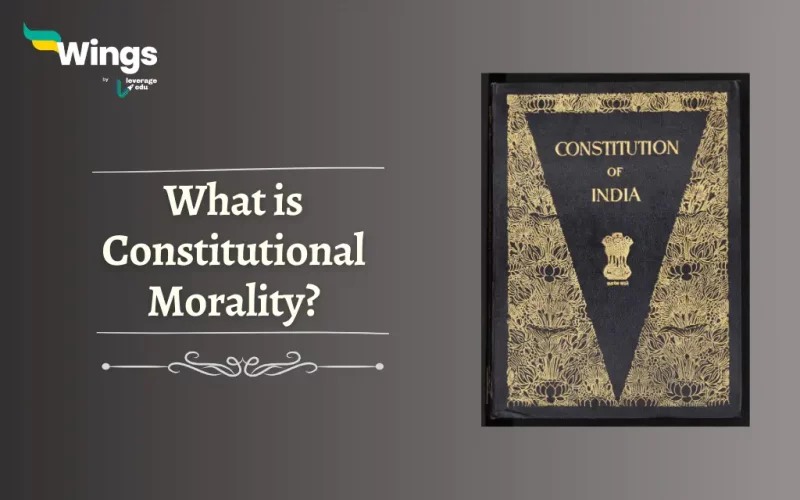Constitutional Morality goes beyond simply following the written rules of a Constitution. It refers to the spirit and core principles that underpin a constitution, such as individual liberty, equality, and the rule of law. Additionally, it is the idea that the Constitution is not just a legal document, but also a moral compass that reflects a society’s shared values and aspirations. Thus, upholding Constitutional Morality means interpreting and implementing the Constitution in a way that is consistent with these fundamental principles.
Table of Contents [show]
What is Constitutional Morality in India?
In India, the concept of Constitutional Morality goes past the mere compliance to the written word of the Indian Constitution. Moreover, it represents a commitment to the core principles and values in it.
- Therefore, this translates to upholding the spirit of the document, hence promoting a just and inclusive society.
- The very foundation of this concept lies within the Indian Constitution itself. The Preamble, Fundamental Rights, Directive Principles of State Policy, and Fundamental Duties are a part of it.
Constitutional morality advocates for values like justice, equality, and liberty, which are the Pillars of a healthy democracy.
- It demands that government actions and policies go beyond simply following the letter of the law and actively follow these fundamental principles.
- While not explicitly mentioned, Constitutional Morality is interwoven into the fabric of the Indian Constitution and is apparent in the Preamble’s priority on justice, liberty, equality, and fraternity.
Also Read: How Many Times Has The No-Confidence Motion Been Passed in India?
Interpretation of the Supreme Court of India
The Supreme Court of India has played an important role in interpreting and implementing Constitutional Morality through landmark judgments.
- An example is the Navtej Singh Johar case, where the Court prioritised Constitutional Morality over societal norms.
- Thus, striking down a law that criminalised consensual same-sex relationships.
- Similarly, the Sabarimala case saw the Court uphold religious freedom, gender equality, and the right to worship.
- Moreover, the Court overturned a tradition that banned women of certain ages from entering the Sabarimala temple.
Also Read: 4 Types of Majority in Parliament in India
How does one Uphold Constitutional Morality?
In addition, the responsibility to uphold Constitutional Morality falls on both citizens and the government of a country.
- Citizens can actively participate in the democratic process, hold leaders accountable, and respect the Rights of others. This means that one needs to be informed about:
- The Constitution and its values.
- Engage in civil discourse.
- Challenge actions that seem unconstitutional.
- The Government should act with fairness, transparency, and respect for the Constitution.
- This means adhering to the rule of law, protecting Fundamental Rights, as well as upholding democratic principles.
Also Read: 11 Features of Democracy
What is Constitutional Morality According to Ambedkar?
Bhimrao Ramji Ambedkar, a key architect of the Indian Constitution, highlighted the importance of Constitutional Morality.
- He believed it was necessary for a successful democracy.
- In his view, it was not enough to have a good constitution on paper. But, the citizens needed to internalise its values as well as principles.
- Moreover, Ambedkar argued that merely following the letter of the law was not enough. He said that the Spirit of the Constitution which is promoting social justice and equality for all, needed to be upheld.
Also Read: Preamble of the Indian Constitution: History, Sources, Components
How do we Use Constitutional Morality in Our day-to-day Lives?
Furthermore, Constitutional Morality can be applied in our daily lives:
- We can treat others with respect, even if we disagree with them.
- Additionally, we can challenge discriminatory practices and stand up for the rights of others.
- Moreover, we can be honest and ethical in our dealings.
Thus, by embodying these values in our everyday actions, we contribute to a society that upholds the spirit of the Constitution.
Related Blogs
Lastly, we hope you liked our blog and gained an understanding of What is Constitutional Morality. Moreover, you may even read more blogs and empower yourself with knowledge regarding Civics and Polity!
 One app for all your study abroad needs
One app for all your study abroad needs















 45,000+ students trusted us with their dreams. Take the first step today!
45,000+ students trusted us with their dreams. Take the first step today!
